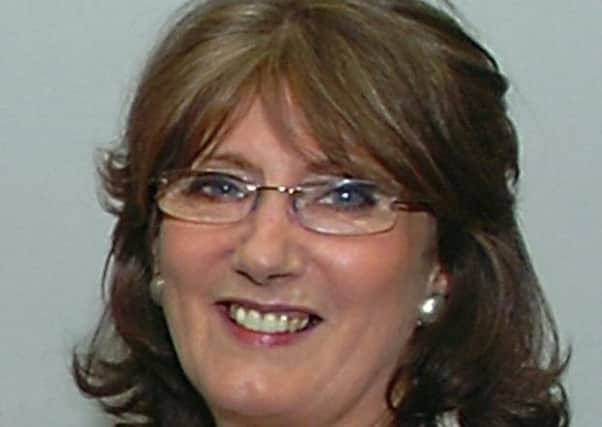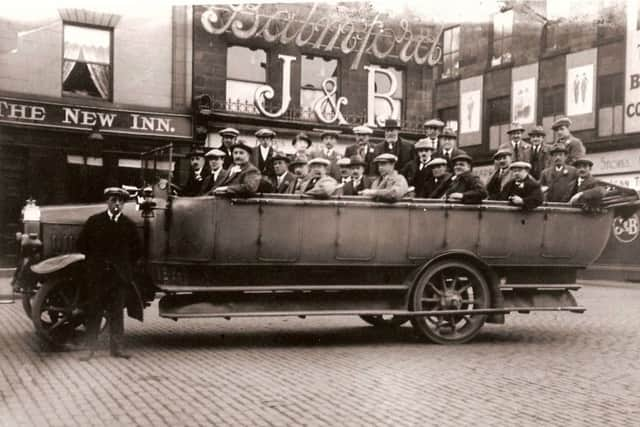Nostalgia column with Margaret Watson


If some people had had their way in the 1880s, every pub and club in Dewsbury would have been closed down.
In 1882, a petition signed by thousands of local people was taken to Parliament by MP Sir John Simon, calling for the prohibition of sales of all intoxicating liquors anywhere in Dewsbury.
Advertisement
Hide AdAdvertisement
Hide AdThe petition failed, but that didn’t stop the powerful anti-drink lobby continuing their fight from the pulpit, the market place and through the letters pages of local newspapers.


Many public meetings were held in Dewsbury, Batley and surrounding districts, with fire-brand speakers warning that alcohol led to pauperism and the workhouse and also to insanity and the asylum.
In 1935 local landlords applied to the Dewsbury magistrates to extend pub opening hours from 10pm to 10.30pm.
But the temperance movement, very active in those days, enlisted 25 high-flying barristers from London to help them prevent this happening.
Advertisement
Hide AdAdvertisement
Hide AdThey represented the Heavy Woollen Temperance Movement, the British Women’s Total Abstinence Union, the Female Tent and Hope Alliance and the Mirfield Tent of the Independent Order of Rechabites.


There were also strong objections from the Dewsbury Free Church Council and the British Women’s Total Abstinence Union.
The Heavy Woollen Victuallers Association and the Club and Institute Union, who had made the application for extra drinking time, put forward a good argument but without success.
They said the 10pm closing time had been imposed during the 1914-18 war, and yet 20 years later here they were still suffering those absurd restrictions.
Advertisement
Hide AdAdvertisement
Hide AdMr George Ferguson on behalf of the pubs and clubs said an extension of hours would not lead to any remarkable increase in drinking and drunkenness.
He said: “Whether a public house is closed at 10 o’clock or 10.30, it will not increase a customer’s spending power one penny.”
Also supporting the extra half hour was Mr Edward Blythe, who worked at the coke plant at Thornhill and who was also a delegate for the Thornhill branch of the Association of Coke workers.
He said there were 70 to 80 men employed on the afternoon shift at the plant who had no chance of obtaining refreshment.
Advertisement
Hide AdAdvertisement
Hide AdMr John Edward McDonald, president of the Licensed Victuallers Association, said there had been constant agitation among members for the application to be made for an extra half-hour’s drinking time.
He knew of employees of the Yorkshire Power Company who did not finish work until 10pm and therefore could not get a drink after a hard day’s work.
Mr Edgar Lister, licensee of the Scarborough Hotel, Market Place, Dewsbury, and Mr Ernest Brook, licensee of the Scarborough Hotel in Thornhill, spoke on behalf of the coal miners who enjoyed a drink after they had finished their night shift, but couldn’t because the pubs were closed.
Councillor Joseph Bedford, secretary of Thornhill Edge Working Men’s Club, said men who went to working men’s clubs didn’t just go there simply to drink.
Advertisement
Hide AdAdvertisement
Hide AdHe said: “Our club has 150 members, but we are only taking £11 a week from the sale of intoxicants. Clubs and pubs are the only social amenities open to many working men.
“Housing conditions in Thornhill and Thornhill Edge are such that there’s no room for a man and his family in the house, and a wife wants her husband out of the way.
“If a man comes in and wants a drink between 10 o’clock and 10.30, and he can pay for it, who says he is not entitled to the privilege?”
The argument against was given by Mr F J Stewart Watts, who said an extension would mean more trouble for the police.
Advertisement
Hide AdAdvertisement
Hide AdThe Reverend W H Pace said if drink was dangerous to a nation in war it was dangerous in peace, and if the drinking trade was not dangerous, why was there a need for a licensing bench?
The affect of an extension, he said “would be to tempt men to spend more money in pubic houses and clubs, money which would come out of funds otherwise used for food and clothing for those at home”.
Magistrates listened to both sides of the argument, adjourned for 30 minutes and returned to say they were refusing the application for an extension of hours.
It would be many years before pub closing times were changed to accommodate the wishes of the local drinking community.
Advertisement
Hide AdAdvertisement
Hide AdBut drinking habits changed and in recent years, the number of pubs and clubs in Dewsbury and Batley have declined drastically.
Where once there had been a pub on nearly every street corner, there is now only a handful throughout the town.
Dewsbury was once called the town of a hundred pubs, and the picture above shows just one of them – The New Inn – situated in the Market Place.
Some of the men who frequented this pub can be seen happily setting off in a charabanc for an outing to the seaside.
Advertisement
Hide AdAdvertisement
Hide AdThis particular pub, and many like it, is with us no more, but it wasn’t the Temperance Movement or the churches which closed them down. It was a change in people’s drinking habits.
Those fire-brand speakers who once stood in this very market place preaching against the evils of drink would be pleased indeed.
In Dewsbury and Batley local war historians are joining together to remember those brave men who were killed in World War One.
They need help finding details of all those killed and hope readers of this newspaper can help.
Advertisement
Hide AdAdvertisement
Hide AdOne researcher, Betty Goodwin, is researching the names of Earlsheaton men whose names are on the Earlsheaton Memorial and also those on the memorial in Crow Nest Park.
She told me there are 123 names on the Earlsheaton Park Memorial, but the only details given are surname and initial.
By much painstaking research she has been able to get further details of most of them, but there are still some she has little or no information about.
Below is a list of their names:
BREAREY C.
BROOKE F.
EVANS W.
HEMINGWAY W.
SQUIRES H.
SQUIRES J.
THOMPSON W.H.
WHEATLEY J.
If you have any information about these men, please email [email protected] or call 01924 433013 and it will be passed on to Betty who is a member of Dewsbury Sacrifices. The team is doing such valuable work in this field in Dewsbury.